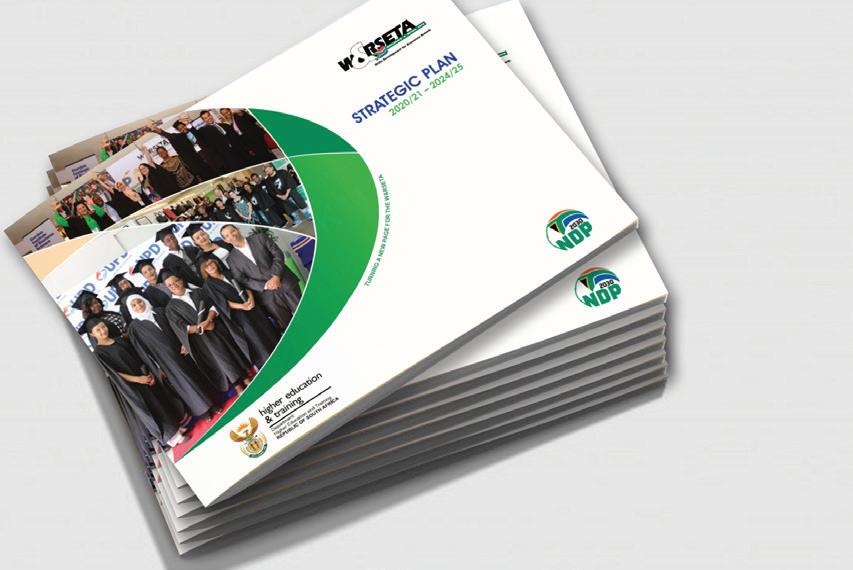W&RSETA’S RESPONSE TO IMPACT OF COVID-19 ON SKILLS DEVELOPMENT IN THE WHOLESALE AND RETAIL SECTOR Government has implemented several measures as part of its strategy to provide relief to vulnerable individuals, workers and employers due to the COVID-19 national lockdown.
• Support vulnerable sectors of the economy, particularly SMMEs, informal traders, cooperatives and NGOs. • Implement
reasonable
accommodation
measures
to
support the sector with COVID-19 regulations, including the provision of Personal Protective Equipment and through the C19 TERS. The revised 2020/21 APP will be communicated to stakeholders once approved.
These measures include tax relief, the release of disaster relief funds, emergency procurement, wage support through the
Following numerous suggestions, comments and concerns
UIF and funding for small businesses. One of the tax relief
from stakeholders, the W&RSETA has revised its implementation
measures that has been implemented is the four-month Skills
roadmap in line with the input from the sector. The roadmap
Development Levy contribution holiday for companies. This
has been revised as follows:
has resulted in a direct impact on the SETAs’ revenue. The
• Applications for funding will close on 30 June 2020 to
W&RSETA has projected a revenue reduction of 45% of its
allow for effective planning and allocation of funding. No
budgeted income of R1, 44 billion for the 2020/2021
extension requests will be considered.
financial year.
• The W&RSETA will implement new funding processes from 1 November 2020 to allow stakeholders and training
As a result of these developments, the W&RSETA has revised
providers access to funding opportunities aimed at
its 2020/2021 Annual Performance Plan (APP) to prioritise
addressing possible shortfalls on some programmes as a
initiatives that will respond to the impact of COVID-19 on
result of non-uptake by stakeholders.
the Wholesale and Retail Sector. The APP targets have been revised from 69 targets to 42.
• Allocated funding that is not utilised by stakeholders will be repurposed to prioritise COVID-19 interventions and support programmes.
The revised APP has prioritised the following key focus areas:
• Stakeholders are also encouraged to prioritise the
• Job retention for employees through re-skilling or multi-
implementation of 2019/20 contracts and to register
tasking of activities for possible changes in business processes. • Increase the number of skills programmes to address the re-skilling and multi-skilling of employees to adapt to new
learners by no later than 30 June 2020. • Stakeholders that may not meet the revised timelines are encouraged to rather focus on the implementation of current projects, i.e. PIVOTAL 2018/19 and PIVOTAL 2019/20.
business processes and COVID-19 requirements. • Implement a project to train 600 graduates which will assist companies with the screening of customers and learners and health and hygiene management at wholesale and retail companies over a 12-month period. • Increase the number of learners completing programmes. • Assist vulnerable youth to gain access to opportunities for
›
education, training and employment.
May 2020 Newsletter
5



